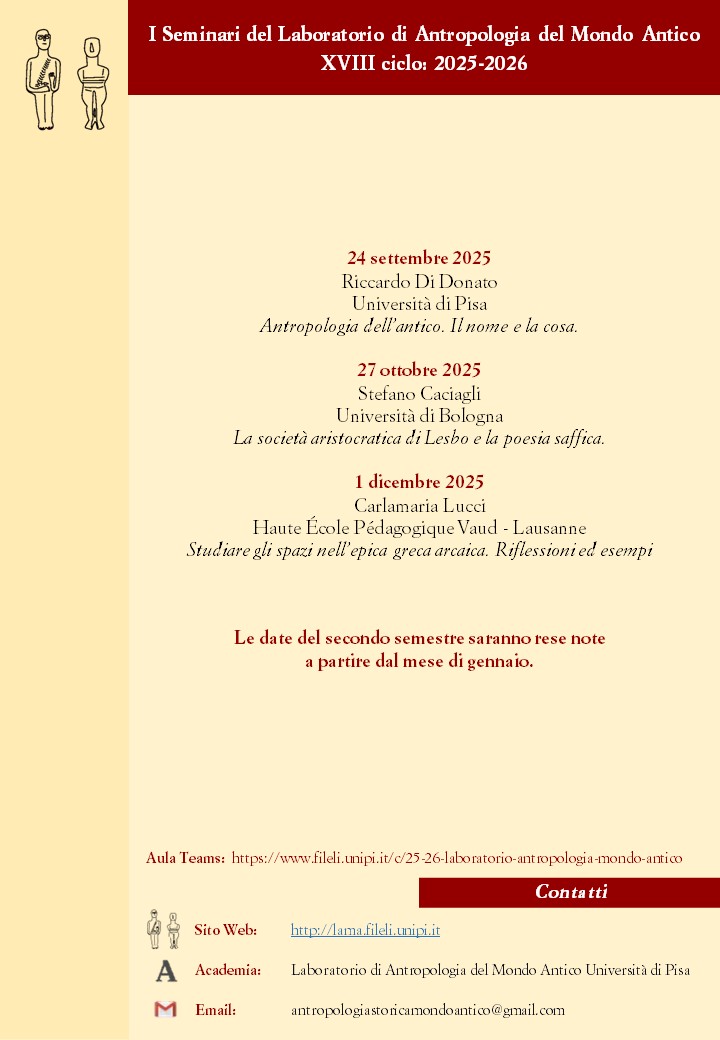Cfp: 17th Annual Conference of the EuropeanAssociation for the Study of Religions (EASR), Tartu, Estonia, 25-29 June 2019 ‘Religion – Continuations and Disruptions’
We invite abstracts for a panel on ‘Urban religion and religious
change:intellectualization of religion and ritual invention’. The
abstract maycontain max. 300 words. Five keywords are allowed. The
deadline forsubmitting or modifying an abstract is 15th December 2018,
23h59CET. You can find our panel at
https://www.conftool.com/easr2019/index.php?page=submissions. For
submitting an individual paper within our panel, please follow
theinstructions at https://easr2019.org/call-for-individual-papers/
General queries can be directed at these email addresses:
cristiana.facchini@unibo.it; emiliano.urciuoli@uni-erfurt.de
Panel Proposal
Submission Type: Open session
Proposal number: # 140
Title: Urban religion and religious change: intellectualization of
religion and ritual invention
Abstract:
The central hypothesis of the newly established International Centre
for Advanced Studies on “Religion and Urbanity” at theMax-Weber-Kolleg
in Erfurt is that many features of past and present religions would be
more plausibly viewed as the outcome of specific effects and uses
ofcity-space and their social and cognitive bases rather than as
inherent characteristics of a specific ‘religion’. Many religious
phenomena, and especially major religious changes, can be better
understood by viewing them in spatial terms, that is, as a result of a
dialectic of”co-production” (Day) of city-space and urban life, on the
one side, and religious representations and practices, on the other.
Therefore, change is not conceptualized by presupposing religion and
the city as two static entities,but rather implying a “continual
process in which the urban and the religious reciprocally interact,
mutually interlace, producing, defining, and transforming each other”
(Lanz). Designating a process in which religion and the urban are
involved,’urban religion’ is the formula that defines also the state
of a religion which is shaped by the interaction with the urban spatial
environment and which can periodically crystallize into major changes
whose assessment and naming is a responsibility of the
scholar. Focusing on changing urban environments against the backdrop
of long-termperiodisations such as the Roman empire, the rise of
Islam, and the Europeanage of explorations (with the Reformation and
the development of colonialempires), this panel aims to reflect upon
forms of connectivity (cooperativeor/and conflictual) and target
religious dynamism through the lenses of religious intellectualization
and ritual invention. These are two kinds of religious changes that
appear recurrently in the cross-culturallyentangled, world-wide
history of religion and urbanism all the way through. How and how far
are religious intellectualization and ritual invention madepossible by
the engagement of religious communication “with the conditions
of specific urban environments at particular moments in the
environmental,political, and social histories of cities” (Orsi)?
Divided into two subpanels dedicated to intellectualization of religion
and ritual invention, respectively, we welcome papers from religious
studies, urban studies, urban history, archaeology and related
disciplines.
Kind regards,
Cristiana Facchini and Emiliano Rubens Urciuoli
Emiliano Urciuoli
Wissenschaftlicher Mitarbeiter
Max-Weber-Kolleg für kultur- und sozialwissenschaftliche Studien
Forschungsgebäude 1
(Haus 27 – Gelände Helios Klinikum)
Nordhäuser Str. 74
99089 Erfurt
emirubens@yahoo.it

